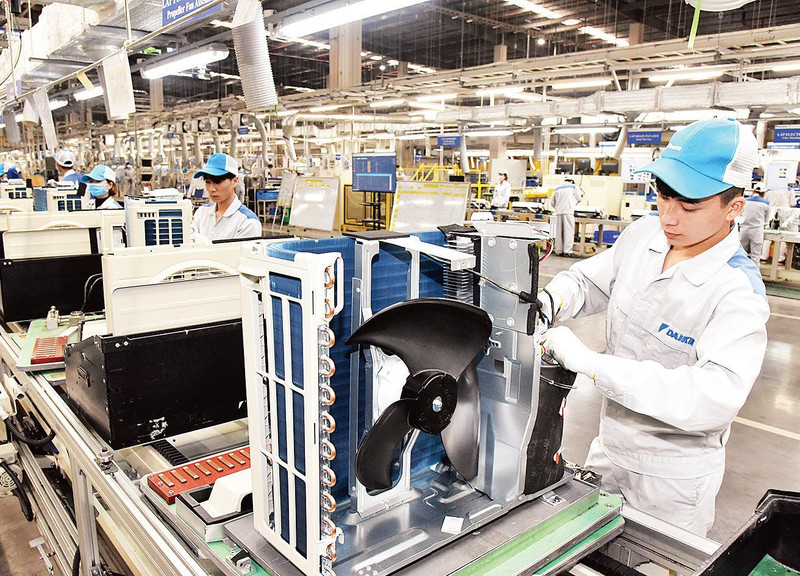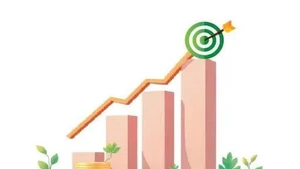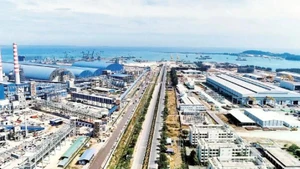Few governments and Prime Ministers in the world have to face so many enormous economic and social challenges at the start of their tenure, as the Vietnamese Government of the 15th National Assembly.
Since early 2021, the highly transmissible Delta variant had upended the achievements in the global fight against COVID-19 and fundamentally changed Vietnam’s strategy, which produced a good result in 2020. In that situation, Prime Minister Pham Minh Chinh’s Government pursued a policy of placing the people’s health first.
Aggressive measures, especially strict social distancing, caused many enterprises to suspend their operations and severely affected people’s lives. But the success of the motto “once social distancing measures are taken and economic growth is sacrificed, the goal of containing the epidemic must soon be achieved” and the Government’s bold actions in implementing vaccine diplomacy and the rapid vaccination programme helped control the spread of COVID-19.
When the pandemic began to be placed under control, the Government promptly introduced Resolution 128, on flexible adaption to COVID-19, laying the groundwork for reviving socio-economic development. The Government fully understood and shared the difficulties facing the business community. On behalf of the Government, the Prime Minister introduced many breakthrough policies to help enterprises maintain, restore and expand their operations in the new normal period.
To realise the goal of both fighting the pandemic effectively and restoring economic growth after the difficult period, the Government and Prime Minister called on the business community to join hands and show resolution in overcoming difficulties and holding on to the belief of “taking difficulties and challenges as motivation to rise”.
Since the onset of the fourth wave of COVID-19 until now, the Government has always listened to enterprises’ proposals and recommendations and stood ready to accompany, support and facilitate their operations on the principle of “harmonising interests and sharing risks” between the state and enterprises.
Since the beginning of the working tenure, the Government has always given priority to institutional building and consolidation, considering it as one of the key political tasks and one of the three strategic breakthroughs. The review of obstacles and inadequacies in legal documents has been carried out methodically, to improve the quality of legal documents, particularly obstacles facing the production and operation activities of enterprises.
In 2021, the Government continued to implement financial and monetary solutions to support businesses, which were issued in the previous tenure. Specifically, the Government directs ministries, sectors and localities to implement policies on exempting and reducing taxes, and fees; extending the time limit for paying taxes and land rental fees; supporting employers to pay wages. Measures have also been taken to reschedule debt repayment periods, exempt and reduce interest rates and fees, and maintain the same debt group to support customers affected by the COVID-19 pandemic. Reduction of power bills, as well as other solutions and policies to support specific industries and fields such as transportation, domestic automobile production and assembly, were adopted to help enterprises maintain their production and business activities.
In the face of the severe impact of the pandemic on the economy, especially after the fourth wave of the pandemic, it was urgent to work out solutions and policies to facilitate the national economic recovery while ensuring the socio-economic development goals for the 2021-2025 period. Given the situation, at the beginning of 2022, the Government issued Resolution No. 11/NQ-CP, on the socio-economic recovery and development and implemented the National Assembly’s Resolution No. 43/2022/QH15, on fiscal and monetary policies supporting the socio-economic recovery and development programme.
One of the three major objectives of the programme is to recover and develop production and business activities, especially in important industries and fields, through reducing costs, supporting cash flow, and creating the most favourable conditions for businesses. While the opening of the economy is carried out adhering to pandemic prevention and control, groups of solutions have been deployed including developing infrastructure; mobilising social resources for development investment; facilitating the recovery of enterprises, cooperatives and business households; speeding up institutional reform and administrative reform; improving business and investment environment; ensuring social security; and supporting employment services.
During the implementation process, the Government and Prime Minister have focused on the effectiveness of a system of consistent and reciprocal policies and solutions, contributing to creating synergy and boosting the recovery and development of production and business, especially in important sectors and those heavily affected by the pandemic. Unlike previous crises, the Government has accurately grasped the crisis caused by the pandemic. The solutions have focused on improving internal capacity on both the supply and demand sides, contributing to promoting economic growth, especially in industries, fields and areas that are the driving force for the economy in the short, medium and long terms.
In the current context, Prime Minister Pham Minh Chinh said that each businessman and enterprise must identify themselves as an elite and brave soldier on the economic front towards joining hands with the whole country to gain success in economic recovery and development.
The short-term support policies, especially for cash flow and market, have been effective in helping enterprises, cooperatives and business households overcome difficulties and recover production and business activities. Thereby, they can avoid losing orders and consumption markets, contributing to maintaining the stable and sustainable development of the businesses in the medium and long term. This is even more decisive in the context that Vietnam's major trading partners recover quickly but soon fall into decline, which will increase competitive pressure and the risk of losing growth momentum for domestic enterprises. In the long term, the support policies will put positive effects on labour productivity, operational efficiency, competitiveness and resilience of Vietnamese enterprises, in the face of unpredictable fluctuations in the world economy.
Although Vietnam's economy has recorded positive developments since the fourth quarter of 2021, new and unfavourable difficulties and challenges have appeared in a row in 2022. The military conflict in Ukraine, geopolitical tensions, rising prices of strategic commodities, and anti-inflation policies of many major economies have impacted both directly and indirectly the domestic economy. The Prime Minister has directed and led the relevant agencies with the steadfast goal of maintaining macroeconomic stability, controlling inflation, promoting growth and ensuring major balances of the economy. The Prime Minister upheld the motto of seeking stability in uncertainty, finding the initiative in the passive position, seeking stability and consistency in transitions and disturbances, establishing risk management tools in recession and crisis, as an indispensable attribute in the market economy, and forming a front line of international economic cooperation and competition in integration.
Therefore, the management of macroeconomic policy always closely follows the actual developments, based on technical issues that are both economic and ensure socio-political stability, along with the flexibly, appropriately and effectively executive art. Fiscal policy is operated in the direction of reasonable expansion, and ensuring efficiency. Monetary policy is operated in a prudent, proactive, flexible, timely and effective manner, in close coordination with fiscal policy and other macro policies. In addition to the central and key solutions of the economic recovery programme, a system of solutions has been actively deployed to remove difficulties for Vietnamese businesses, including the reduction of environmental protection tax for gasoline; strictly managing the goods the State sets the prices, ensuring the supply of essential goods; new search, market diversification, supply chain diversification; promoting the connection of labour supply and demand; providing information, markets, prices, changes in policies of trading partners.
Besides performing well in the role as the country's highest policy-executing agency, the head of the Government also requires businesses to actively adapt to new fluctuations, difficulties and challenges. Enterprises need to actively innovate models and methods of production and business, associated with innovation and digital transformation, to improve labour productivity, and operational efficiency and create new values for products.
The policies and solutions implemented and the results brought from the beginning of 2022 until now, have proven to be correct, reasonable, timely and suitable to the state of Vietnam's economy in general and businesses in particular. In the context of slowing global economic growth, the domestic economy continued to recover in all three areas of agriculture, industry and services. The growth rate of the next quarter is higher than the previous quarter and the whole year is expected to exceed the set target, by more than 7%. Major balances of the economy are secured, and important markets such as currencies, securities, and real estate are well controlled; the inflation rate is controlled below the set target.
This is an important premise for our economy to achieve comprehensive results in 2022 and prepare for 2023, the pivotal year of the five-year plan 2021-2025.
















